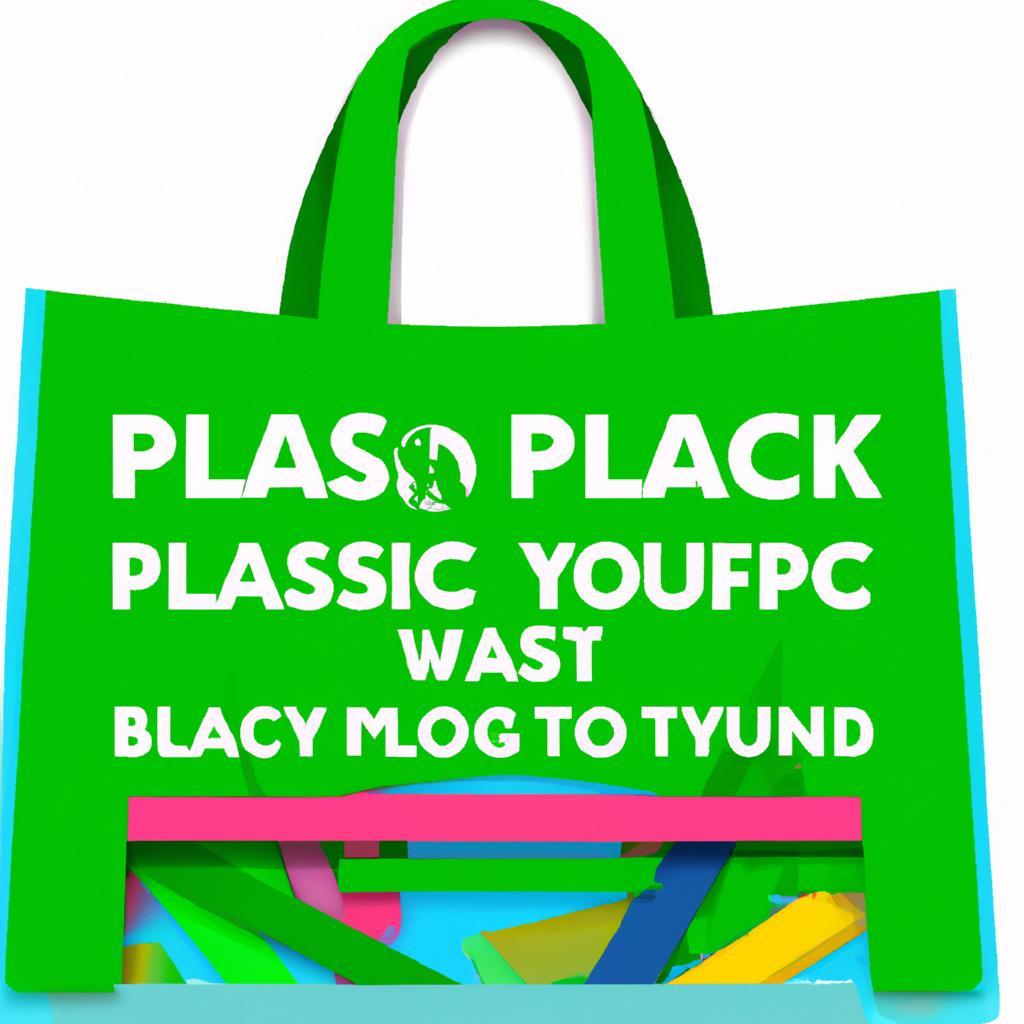In an era where convenience often takes precedence over sustainability, a quiet yet powerful revolution is blossoming at grocery stores, local markets, and artisanal shops around the globe. The phrase ‘Bring Your Own Bag’ is evolving from a mere suggestion to a movement—a clarion call urging us to transition from single-use plastics to practical, reusable alternatives. As plastic pollution continues to choke our oceans, threaten wildlife, and infiltrate our ecosystems, this simple act of swapping disposable bags for more eco-friendly options isn’t just a trend; it’s a step towards a greener future. In this article, we’ll explore the significance of the ’Bring Your Own Bag’ initiative, its impact on the environment, and how each small change can lead to a more sustainable world for generations to come. Join us as we delve into the many reasons to embrace this movement and reveal how your participation can make a difference.
The Rise of Sustainability: Understanding the Impact of Plastic Waste
The increasing awareness of sustainability has revealed the staggering impact of plastic waste on our planet. As communities shift towards more eco-conscious practices, the issue of single-use plastics has come to the forefront, prompting many to consider alternatives. The **”Bring Your Own Bag” (BYOB)** movement exemplifies this change, encouraging individuals to decline plastic bags in favor of reusable options. Recognizing the environmental benefits of this practice can foster a sense of responsibility and empowerment among consumers. Switching to reusable bags not only reduces plastic waste in landfills and oceans but also conserves energy and resources that would otherwise go into manufacturing new bags.
Many retailers are joining the BYOB revolution by incentivizing customers to bring their own bags. This not only aids in diminishing plastic pollution but also cultivates a culture of sustainability within the community. As people adopt this habit, businesses may notice a shift towards more eco-friendly practices, further driving down plastic consumption. Key benefits of adopting reusable bags include:
- Long-term Savings: Reusable bags often cost less over time compared to continually purchasing disposable ones.
- Durability: Made to withstand daily use, they minimize the likelihood of wear and tear, making them a practical choice.
- Style Variety: Available in numerous designs, they allow personal expression while advocating for sustainability.
| Plastic Bags | Reusable Bags |
|---|---|
| Typically used once | Designed for numerous uses |
| Contributes to pollution | Helps reduce waste |
| May contain harmful chemicals | Usually made from sustainable materials |
By embracing the BYOB culture, consumers can significantly contribute to a more sustainable future. This collective shift not only addresses the problem of plastic waste but also inspires innovative solutions and further improvements in eco-friendly practices. As awareness grows, the hope is that society will adopt more sustainable habits, leading to a cleaner and healthier planet for generations to come.

Practical Choices: Selecting the Right Bags for Everyday Use
When it comes to transitioning away from single-use plastic bags, having the right reusable bags can make all the difference in your daily routine. Consider **canvas tote bags** for their durability and spaciousness, perfect for grocery shopping or a day out. For those who value style as much as functionality, **recycled fabric bags** can add a touch of personality while being environmentally friendly. Don’t forget the convenience of **foldable nylon bags**; these lightweight and compact options fit easily into any purse or backpack, ready to tackle unpredictable shopping needs.
To ensure you’re making the best choice for your lifestyle, think about the following factors when selecting your bags:
- **Size**: Choose bags that can accommodate various shopping needs, big or small.
- **Material**: Opt for bags made from sustainable materials like organic cotton or recycled plastics.
- **Ease of cleaning**: Look for washable bags to maintain hygiene without hassle.
- **Design and style**: Pick colors and patterns that resonate with you to encourage regular use.
- **Durability**: Ensure bags are sturdy enough to withstand daily wear and tear.
| Bag Type | Best For | Key Feature |
|---|---|---|
| Canvas Tote | Grocery Shopping | Highly Durable |
| Recycled Fabric | Daily Use | Eco-Friendly Fashion |
| Foldable Nylon | Emergency Shopping | Compact & Light |

Community Engagement: Building a Culture of Conscious Consumption
Fostering a culture of conscious consumption begins with the small choices we make daily. As communities become increasingly aware of the environmental impact of single-use plastics, the shift toward providing our own reusable bags is gaining momentum. Embracing this change not only reduces waste but also encourages individuals to take pride in their contribution to a larger cause. To truly engage the community, initiatives like local workshops, pop-up markets, and educational sessions can spotlight the benefits of going bag-free. Consider organizing events that allow participants to:
- Learn DIY bag-making techniques using sustainable materials.
- Participate in a community swap where old bags can be exchanged for new ones.
- Attend talks from local eco-activists on the importance of reducing plastic consumption.
To gauge the community’s progress and commitment, a simple tracking system can help visualize the impact of these choices. For instance, the implementation of a reusable bag champion program can incentivize residents to share their experiences and successes. Below is an outline that illustrates how the community can measure its journey toward reducing plastic dependency:
| Month | Reusable Bags Distributed | Plastic Bags Reduced | Community Engagement Events |
|---|---|---|---|
| January | 250 | 500 | 3 |
| February | 300 | 750 | 5 |
| March | 450 | 1,000 | 4 |
To Wrap It Up
As we draw the curtain on our exploration of the “Bring Your Own Bag” revolution, it becomes clear that this simple shift in our daily habits holds the power to transform our environment. By exchanging disposable plastic for practical, reusable alternatives, we not only reduce waste but also contribute to a collective movement towards sustainability. Embracing this change is more than just a personal choice; it’s a commitment to our planet and future generations. Together, we can cultivate a culture that values resourcefulness over convenience, empowering countless others to join in this pivotal journey. Let us step forward, bags in hand, ready to make mindful decisions that weave threads of responsibility and care into the fabric of our everyday lives. The path to a greener future starts with each of us—one bag, one choice at a time.
